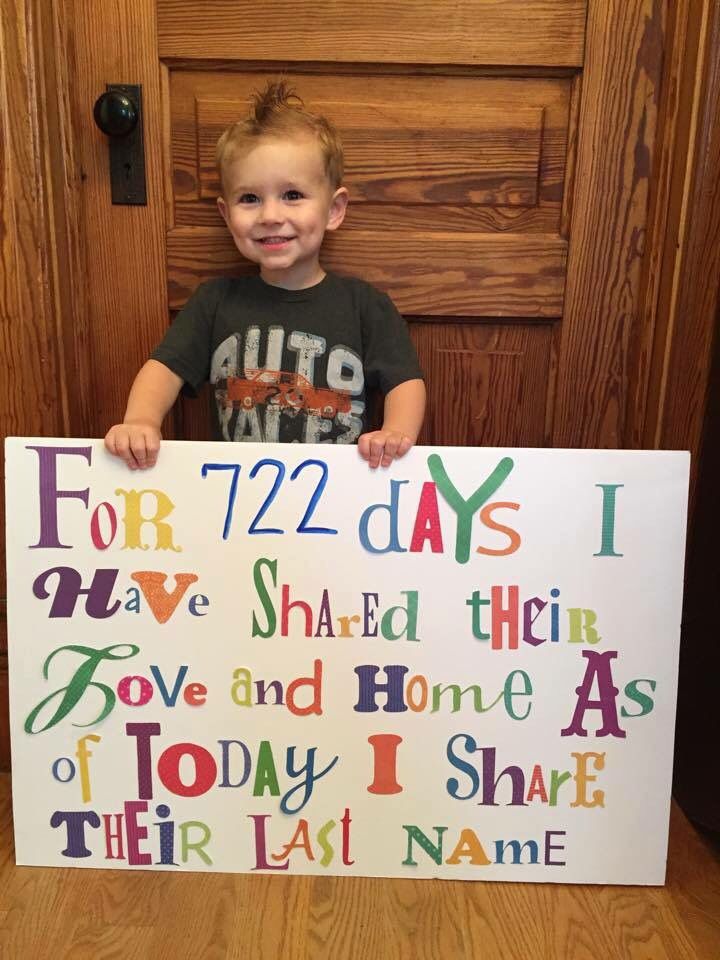How to deal with a smart aleck child
parenting advice from Care and Feeding.
Photo illustration by Slate. Photo by Getty Images Plus.Care and Feeding is Slate’s parenting advice column. Have a question for Care and Feeding? Submit it here or post it in the Slate Parenting Facebook group.
Dear Care and Feeding,
My normally sweet and considerate 6-year-old has suddenly decided that he’s smarter than me. MUCH smarter than me. He’s grown fond of asking me questions and then disputing my answers, and he takes great joy in my not knowing the answer to a question. I have dyscalculia, which he knows, and he thinks it’s hilarious to try to stump me with complicated mental arithmetic (“Hey, Mommy! What’s 3,475 times 7,213? Ha ha!”). When he disagrees with me over a fact, and I show him the correct answer in a book, he’ll tell me the book is wrong, too. He once told me I needed to go back to college because he asked me the meaning of a word (a meaningless bit of gibberish he had made up on the spot), and I couldn’t tell him.
My husband and I have become really frustrated with his rudeness and have had several talks with him about how it’s unkind to speak to people like this. My husband has also reiterated multiple times that while no adult knows everything, I’m intelligent and the most educated person in our family. My son is doing very well in school, and perhaps he’s just feeling cocky because he’s one of the strongest readers in his class, but it’s making me miserable. His teachers say they haven’t seen any behavior like this in school. Is this a normal kindergarten phase? How can we put a stop to this insufferable behavior? I want him to be confident and take pride in his skills, but lectures on respect and being a kind friend seem to be getting us nowhere.
—Mom of an Evil Genius?
Dear M.a.G.,
Ugh, kids can be such jerks. I might be way off base, but have you considered that his outsized cockiness stems not from true over-the-top confidence but from insecurity? Even if he’s doing well academically, no one is doing well socially right now. If he does this to his classmates, they’ll shut him down, or they would if they were interacting normally, and I’m guessing they’re not. This smart-aleck persona is something he’s trying on, and you just happen to the be the person he’s most comfortable being his most obnoxious self around. Congratulations! Now, how to make him stop?
My brilliant, unexpected answer is: Just stay the course. He knows you’re smarter than he is, and that he’s being disrespectful, so the lectures are just a waste of time and energy. Reward his know-it-all games with as little attention as possible. Deflect, distract, and ignore. When he talks to you about something other than his brilliance, give him your full attention and praise him to the skies as often as you can. With time, he’ll move on to some other annoying habit.
Dear Care and Feeding,
I would like to ask for advice on how to let/enable my in-laws to help more with child care.
My husband and I (female) have a 6-month-old. His parents live an hour away, so we have formed a bubble with them so they can see the baby on the weekends.
Before they visit, they always say they want to help, and that they would like to babysit. And my husband and I always talk about how we want to let them help. But when they arrive, they get so excited that they overwhelm her, she cries, and my husband and I end up soothing her and we all sit around drinking coffee and socializing. Which is nice, but we really do need to get stuff done! And I want them to be able to babysit eventually. Part of the problem is that my in-laws are in their 60s and both have joint ailments that make juggling an increasingly heavy, wiggly baby difficult for more than a few minutes at a time.
Do you have any tips for making baby care easier for someone with physical disabilities? I know there are parents who have disabilities, so there must be ways to do this.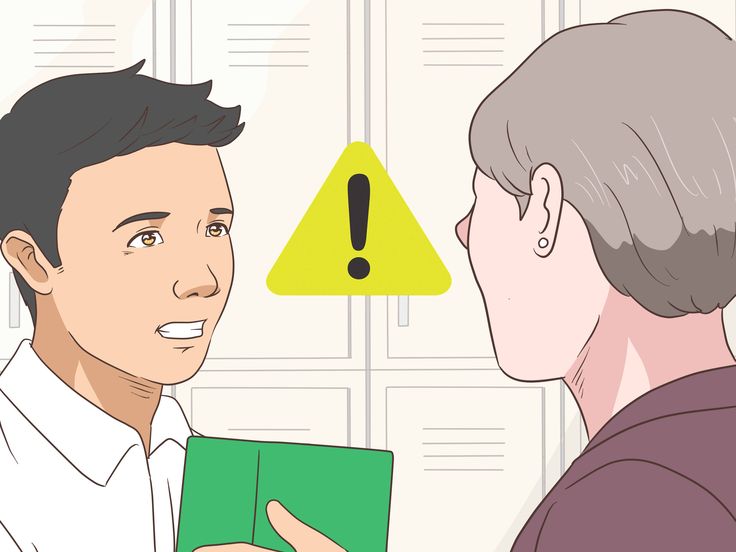 Any advice for getting overexcited first-time grandparents to calm down and getting worried first-time parents to let go?
Any advice for getting overexcited first-time grandparents to calm down and getting worried first-time parents to let go?
—Tired Tot Wrangler
Dear Tired,
As soon as the grandparents arrive, make up an errand and leave. Even if you just drive around, you’ll be giving your in-laws the freedom they need to do things their own way and quickly shifting the mood in the room from joyful (overstimulating) greetings to more focused child care. As to the joint ailments, if they truly can’t manage things like diaper changes and putting her in the crib on their own, you’ll need to stay nearby, but that doesn’t mean you can’t escape for at least an hour or so.
If true babysitting does end up being beyond them, you will need to find another source of help that doesn’t compromise your bubble, and you’ll need to see your in-laws less frequently, until everyone can be vaccinated. This is unfortunate but it’s not going to help your relationship in the long run to be relying exclusively on them for child care that they’re not capable of providing.
This is unfortunate but it’s not going to help your relationship in the long run to be relying exclusively on them for child care that they’re not capable of providing.
• Read other recent Care and Feeding columns.
• Discuss this column in the Slate Parenting Facebook group!
Dear Care and Feeding,
We have a now 2-year-old that started day care for two days a week in January 2020 only for that to end abruptly in mid-March, as it did for most everyone. In the summer it felt like so many of us were “in it together”—those of us lucky to have full-time jobs, but without child care doing a “half-baked” job together. When our day care reopened, they invited us back with enhanced hygiene procedures, but they mentioned a parent with kids at the center is an EMT, which felt like too close to possible COVID-19 exposure.
In the summer it felt like so many of us were “in it together”—those of us lucky to have full-time jobs, but without child care doing a “half-baked” job together. When our day care reopened, they invited us back with enhanced hygiene procedures, but they mentioned a parent with kids at the center is an EMT, which felt like too close to possible COVID-19 exposure.
Now it feels like EVERY ONE of my colleagues have all started using day care again when most days I’m not even treading water, I’m sunk. It’s not like I NEED child care (my workplace is remote through April, and even when it’s not, between my partner and I we made it work for the first two years), but my work quality is suffering and while my managers have said they’ll take “pandemic factors” into consideration with work evaluations, if most everyone has day care again and I don’t, then I’m coming up short.
But then if I start daydreaming of having day care again, I think of how our state is in CRISIS right now with COVID-19, I think of our pediatrician who strongly advised against it for now if it was at all possible, and I think of how I may be pregnant through the next year (I’m very early in my first trimester with a history of loss) and how little we know about COVID-19 and early pregnancy. I’m skeptical of hiring a sitter because we don’t have a lot of money and it feels like it would be an impossible ask to hire someone for eight hours a week and then expect major safety commitments from them.
This is starting to feel more like a bundle of conflicting hopes and worries and not a question, but I guess I’m asking: How did you or other parents make the decision to use child care again? How does changing local information impact your decision or daily use of it? How do you manage the anxiety of knowing your child may be exposed when they’re at day care? And how should the distribution of vaccines impact decisions about child care into the next year? It just feels like so much of approaching this question has been like the U. S. response to the pandemic itself: We all have the “freedom” to figure out what’s best for your family.
S. response to the pandemic itself: We all have the “freedom” to figure out what’s best for your family.
—Sinking in SoCal
Dear Sinking,
You have my sympathy! These are impossible decisions, and I agree that it’s grossly unfair that the burden of managing the pandemic has fallen on the shoulders of individuals.
That said, I think that you need child care in order to do your job and protect your mental health. You and your partner were able to take care of a baby by “making it work,” but that’s very different from caring for a toddler. It feels strange to me to be pushing back against the advice of your pediatrician, but the doctor did say “if at all possible,” and I don’t know how much they know about the details of your situation. Also, pediatricians aren’t infallible; they’re your kid’s doctor, and this seems like a bit of an overreach to me.
It feels strange to me to be pushing back against the advice of your pediatrician, but the doctor did say “if at all possible,” and I don’t know how much they know about the details of your situation. Also, pediatricians aren’t infallible; they’re your kid’s doctor, and this seems like a bit of an overreach to me.
If your day care is open and hasn’t had any cases, I would feel comfortable, in your shoes, sending my kid back there, especially as vaccines begin to roll out. If you can get her to wear a mask, even better.
For more of Slate’s parenting coverage, listen to Mom and Dad Are Fighting.
Dear Care and Feeding,
I’m a straight cis woman with two preteens, a boy and a girl. They are wonderful kids, and both have always been sensitive and emotional, which I love. My son is becoming more and more moody—understandable given his age—and I’m finding myself surprised by his defiant outbursts (again, understandable as they are).
My problem is how extremely triggered I feel by male anger. I have a history of abusive relationships with men, and I grew up in a very traditional family, where the men are the boss and the women do the soothing and placating. My parents are part of my kids’ lives, so they see this relationship model regularly. My father explodes, my mother steps in to smooth things over. His TV/radio/food choices are always the default.
My son adores my father, and I’m seeing him replicate some of his grandfather’s behaviors.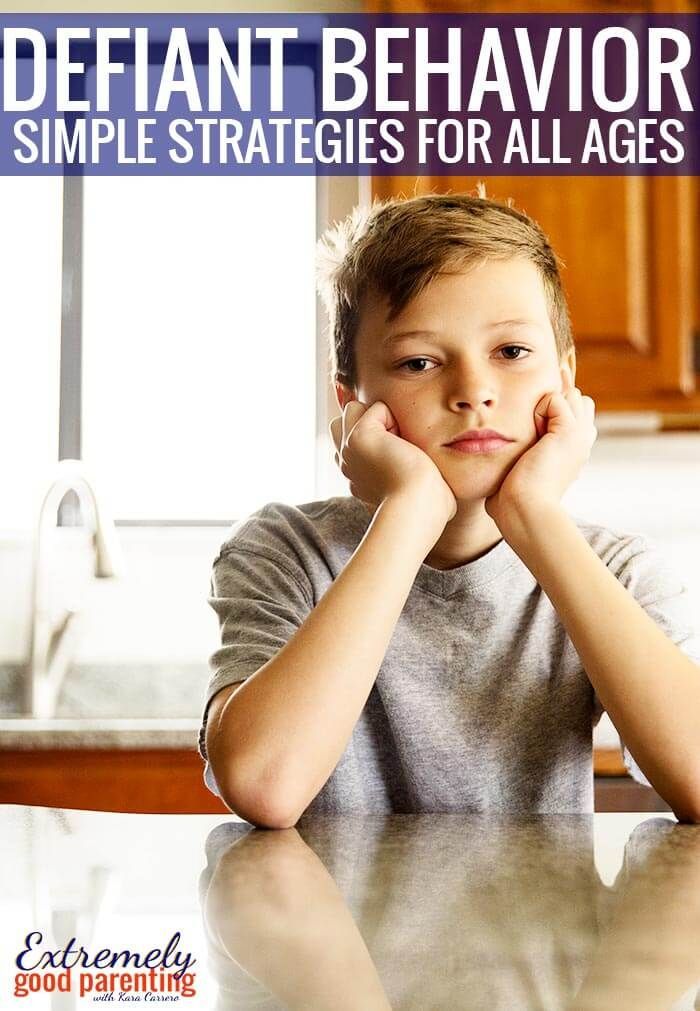 I’ve been a strong feminist since my early 20s, and I know I’ve come a long way. But in this case, I find myself going into an automatic tailspin trying to please and soothe my son. His anger makes me cry when I’m alone and feel utterly helpless when I’m facing it. I just freeze. I want to learn to do better here.
I’ve been a strong feminist since my early 20s, and I know I’ve come a long way. But in this case, I find myself going into an automatic tailspin trying to please and soothe my son. His anger makes me cry when I’m alone and feel utterly helpless when I’m facing it. I just freeze. I want to learn to do better here.
—I Love My Kids
-
Content Lockedfor Slate Plus members
My Niece’s Visits Are Becoming a Big Problem - I’m Worried My 4-Year-Old Is About to Discover I’m a Big Liar
-
Content Lockedfor Slate Plus members
My Stepson Is Corrupting My Twins With His Alarming Fascination - My Child Desperately Wants to Perform.
 The Problem? He Has Terrible Stage Fright.
The Problem? He Has Terrible Stage Fright.
Dear ILMK,
How incredibly painful it is when our kids force us to reenact the patterns that hurt us when we were children! The good news is that you’re aware of what’s happening. That’s a big difference, already, between your family and the family you grew up in.
The bad news is that your parents are so present in your kids’ lives and that your son sees your grandfather as a role model. While you can’t change what he’s already absorbed, you can talk to him about how his outbursts make you feel and why. Without going overboard or deliberately making him feel guilty, you can make it clear that his rage is not OK, and that you won’t tolerate it. Then, follow through. Instead of placating, leave the room until he’s done raging. Don’t be an audience for his outbursts if you can help it. Say, “I love you, but I can’t be around you when you’re like this. Please come see me when you’ve calmed down, and we’ll talk about this then.” If you can get yourself to change, you can get him to change, too.
Then, follow through. Instead of placating, leave the room until he’s done raging. Don’t be an audience for his outbursts if you can help it. Say, “I love you, but I can’t be around you when you’re like this. Please come see me when you’ve calmed down, and we’ll talk about this then.” If you can get yourself to change, you can get him to change, too.
— Emily
More Advice From Slate
How do I get my 4-year-old to stop tattling? I don’t know if it’s tattling exactly, but I feel like at the end of the day I get a full report of who followed the rules at day care (my child) and who did not (everybody else). I hear about who pulled hair, who was in timeout, who said something mean. I’ve tried saying, “Oh they’re still learning,” for a while. Lately I’ve been trying something like, “What’s something nice Jonnifred did today?” I don’t want my kid to feel like they can’t tell me the bad things that happen to them, but I also don’t want them so focused on other kids’ bad behavior. Is this a phase or should I be doing more?
I’ve tried saying, “Oh they’re still learning,” for a while. Lately I’ve been trying something like, “What’s something nice Jonnifred did today?” I don’t want my kid to feel like they can’t tell me the bad things that happen to them, but I also don’t want them so focused on other kids’ bad behavior. Is this a phase or should I be doing more?
- Advice
- Family
- Parenting
How I Handle Getting Corrected By an Incorrect Child
Parenting
Having the world explained by a child is more frustrating than any other conversational experience I've ever had.
by Garth Johnson
Updated:
Originally Published:
My 9-year-old son still asks me for help with his homework, but he clearly also suspects that he is smarter than I am. I’m not really sure if this is a product of the culture he’s growing up in or my parenting or just the hubris of childhood. I don’t remember if I had similar thoughts when I was a kid. But I know my son is looking down while looking up.
It’s been this way for a while. No matter how many times we tell him we have completed the third grade already (also, college), he remains convinced we can’t follow his more complicated thought processes. As nurturing parents, we are respectful and encouraging. We tell him he’s very smart, which he is, and that when he’s wrong it’s mostly because he’s rushing, which it is, or because he’s ill-informed, which he sometimes is on account of being a child.
This story was submitted by a Fatherly reader. Opinions expressed in the story do not necessarily reflect the opinions of Fatherly as a publication.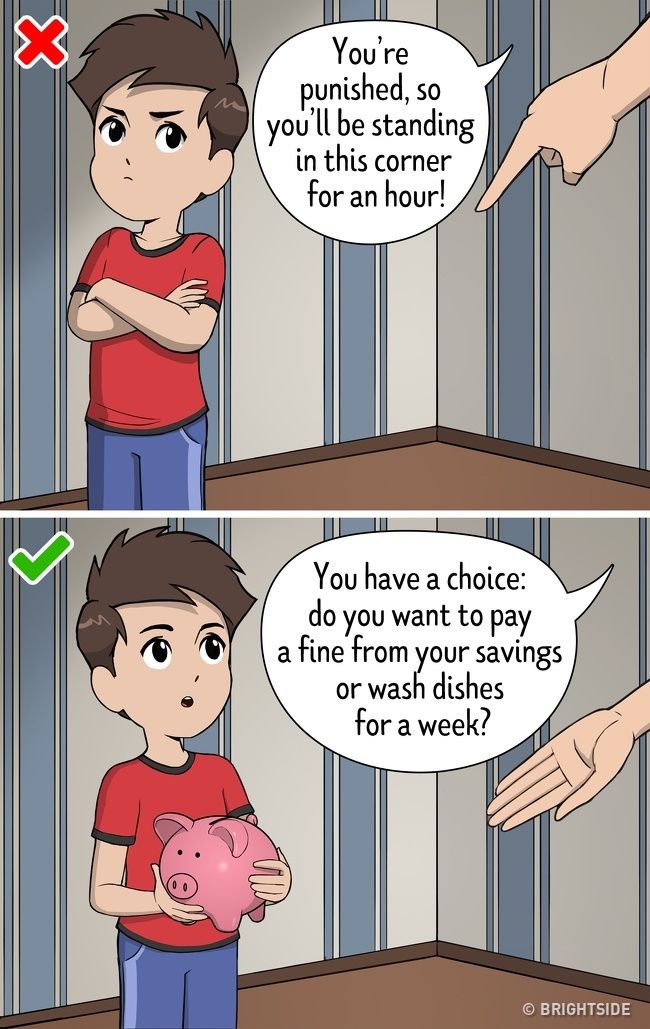 The fact that we’re printing the story does, however, reflect a belief that it is an interesting and worthwhile read.
The fact that we’re printing the story does, however, reflect a belief that it is an interesting and worthwhile read.
I won’t call him dumb or anything, but I will call him out. Spell this hard word! What’s 374 multiplied by 37? What are the capitals of all the old Soviet Republics? Watcha got smart guy? (I want to say smart ass, but that’s a bit much.) When he fumbles and stammers — I take no pride in this — I get a satisfied look on my face and start getting close to him. I’ll wag my head at him tauntingly and get right up in him. I interrupt him with monosyllabic grunts to keep him from saying nonsense.
Then I bear hug and spin him around and dump him onto the couch. It feels good when debates devolve into wrestling. I think it’s important for him to know my love isn’t contingent on his being right or smart or anything else.
Also, I really don’t want to argue with my obstinate 9-year-old when he’s being a little shit. Roughhousing is a good avoidance and coping mechanism.
Sometimes, if I manage it right, I’ve got the kid giggle on the couch before he gets to the deadliest word of all… “actually.” Listening to a child say “actually,” is like nails on a chalkboard and your the chalkboard. This is a word that should be banned from the lexicon of all children. It will only be reintroduced for their use after these kids have grown up and had children of their own. My son says it like he’s the one explaining how things work. It’s just so ballsy and condescending. And he doesn’t know what condescending means.
I will give the boy credit though. He says things with such easy conviction that you almost have to think twice about it before remembering he’s only nine and wrong. He does have a good memory and notices truly unremarkable things to a remarkable extent, so I wouldn’t put some of his obscure factoids past him. A certain dinosaur’s height and weight? He could be right. The favorite food of a six gilled shark? He probably knows. Anything to do with a pack of cards, consisting of eight pieces of cardboard that in no way should cost $5? He’s the expert. And that’s cool. I want that for him. Developing expertise through passion is great.
And that’s cool. I want that for him. Developing expertise through passion is great.
The only problem with encouraging this sort of thing is that it also encourages extrapolation. He thinks that because I don’t know Pokemon, I need the world explained. This leads to agitation. I suppose it’s age-appropriate, but it still drives me batty.
So I choose to look on the bright side. Maybe he’ll be a lawyer or a critique. Maybe he’ll be on the debate team. Maybe his self-assurance will help him in the end. That would actually be pretty sweet. In the meantime, though, I’ll be wrestling the kid on the couch.
Garth Johnson is a dad and a carpenter in Fairbanks, Alaska.
This article was originally published on
8 simple steps to teach children to respect and hear their parents?
Naughty children: why did they not please their parents?
In order for such children to behave "normally", adults have to make efforts: to restrain, control, repeat, refuse, punish and warn. And that's the point: we don't want to strain ourselves by raising children. It would be more convenient for the child to be controlled like a toy with a remote control.
And that's the point: we don't want to strain ourselves by raising children. It would be more convenient for the child to be controlled like a toy with a remote control.
You tell your child: “You need to wash your face” or “Wash your hands!”, but he does not listen to you. You remind that it's time to break away from the computer and sit down for lessons, he frowns with displeasure: "Leave me alone!" - Of course, it's a mess.
Smart parents have funny, smart and obedient children. Moreover, smart and loving parents take care of this: they make sure that their children are not only smart, but also obedient. This seems obvious: if you want to teach a child to do good things, you first need to teach him to obey you elementarily.
Unfortunately, ordinary children have long been accustomed to not listening to their parents: you never know what they say! And the point here is not in the children, but in us, in the parents, when we say things that are important for us to the children somehow not seriously, not paying attention to whether the children are listening to us or not, when we put forward our demands unconvincingly.
Your requests should be calm but clear instructions, sound weighty and be accompanied by control. The child must know that your words are not empty words, and if you warn that toys that are not removed are thrown away, they really disappear. If a parent approaches a child with a confident request, knowing that he has leverage, the child will respond to such a request.
But it's not just about the right wording and levers of influence, there is another important trick in building relationships with a child, namely, whether your child has a HABIT to obey you. "To obey or not to obey parents" is determined not only by what and how the parents say, it is also determined simply by the child's habits.
There are children who have the habit of mindlessly obeying everyone, and there are children who have the same habit of mindlessly disobeying anyone. Obeying "everyone" or "no one" are equally bad habits, but the habit of obeying selectively, namely, OBEYING YOUR PARENTS, is a great habit! Your children should have the habit of paying attention to what you say, the habit of doing what you ask them to. Teach your child to listen and obey you, and you will have your parental authority, you will have the opportunity to raise a developed and thinking person from your child.
Teach your child to listen and obey you, and you will have your parental authority, you will have the opportunity to raise a developed and thinking person from your child.
Is it difficult to get your children into this habit? Much depends on age: it is difficult to teach a teenager to obey his parents, it is almost impossible for many mothers, and developing such a habit in a small child is a solvable task. In principle, the sooner you begin to develop in your child the habit of listening and obeying you, the easier it will be for you.
The easiest method to help you with this is the "Eight Steps" method. Its idea is to teach your child to obey you, starting with the simplest, most elementary things, and very gradually, methodically move step by step to more difficult things. From simple to complex.
First, we do what any parent can do with any child, then we add a little, then a little more - and so we go a long way from a natural child to a well-bred child who already understands that people who are loving and more experienced than him should obey right.
The age at which the Eight Steps algorithm works best is from 2 to 12 years. After 12 years, a well-bred child should already become your friend and helper, you are no longer so much raising him, but helping him in his self-education, helping him to solve life's tasks in the best way.
Now let's get down to business. What are these steps?
Step 1: Addition.
As the King from Antoine Saint-Exupéry's fairy tale "The Little Prince" said, controlling the sunrise is easy, you just need to know when the sunrise occurs. Say at the right moment: "Sun, rise!", and you will become the lord of the rising sun... So is the child: if the child does not obey you yet, he still does something. Go from what is, adapt to what he does, and direct his activity in the direction you need.
The child runs, you shout to him: "Well done, faster, faster!" - he happily adds speed.
Sit down at the table, you know what the child loves, what he will still reach for. Get ahead of him: "Take your favorite bread!" You said he took it.
Little Nikita likes to clap his hands. "How does Nikita clap her hands? - Clever girl, Nikita! And now, Nikita, show me how the car hums! ... Wonderful!" - you teach him to do what you tell him. He is one and a half years old, and he is already learning to listen to you and obey.
If you can't manage, take the lead. You cannot (yet) control the behavior of the child - adapt to what he does anyway, and what he wants to do himself.
Step 2: Taming: Train to come when called.
Do you know what "attach" means? The fisherman throws food into the river - he attracts fish. When an ancient man decided to tame wild dogs, he also started with affection, then he began to feed them, then stroke them, and gradually taught them to run up to him when he called them. Have you already tamed your children? Do they come running to you when you call them? If your children are still wild, start like an ancient man by taming them.
Your child likes to crunch apples or nibble cookies: your task is to make sure that access to these sweets is not free, but only through you. This is not in the vase, but you can give it to your child. Now you don’t wait until he starts begging from you, but choosing a good time, you yourself announce: “Who wants a tasty apple, quickly runs to me!”, “Cookies, cookies, delicious cookies for obedient kids.” Children run, you treat them and pat them on the head: "Well done, how quickly you run to your mother!" So the hunt has taken place - you are already accustoming children to come to you when you call them.
This is not in the vase, but you can give it to your child. Now you don’t wait until he starts begging from you, but choosing a good time, you yourself announce: “Who wants a tasty apple, quickly runs to me!”, “Cookies, cookies, delicious cookies for obedient kids.” Children run, you treat them and pat them on the head: "Well done, how quickly you run to your mother!" So the hunt has taken place - you are already accustoming children to come to you when you call them.
Invite your child to you - and praise him when he comes to you! A bait can be not only food, but everything that the child likes: and squeeze the cream on the cake, and cut the bread, and the time when you can play with the child in the games that he loves. "Mom has five minutes! Whoever comes running quickly can play hide and seek with her!" Important: if a child comes running, you reinforce it: give a bait and praise. If the child is in no hurry to run, comes later and demands, you don’t give a bait: “That’s it! It’s all over!”, but you prompt: “When mom calls, you need to run quickly!”. Teach your child to fulfill your requests, reinforcing it with joy.
Teach your child to fulfill your requests, reinforcing it with joy.
Step 3. Learning to negotiate.
Your child will be intelligent and not capricious if you teach him to use his mind. And for this, take the time to explain to the child what is good and what is bad - and teach him to negotiate. You can try to talk intelligently with a child even at two years old, and if your child is already three years old, this is already a must. Teach your child to negotiate and fulfill agreements!
You and your child are on the playground, it's time for you to leave, but the child doesn't want to leave, he wants to play more. Just command?
The child may begin to protest with a roar. What to do?
Negotiate.
The first agreement - before coming to the playground. "You want to go to the playground, but we can't play there for a long time, I will need to return home, cook dinner. You promise me that when I say that it's time for us, you won't cry, but will say goodbye to all the children and go with me home? Won't you keep me?" The second conversation is when it's time for you to leave.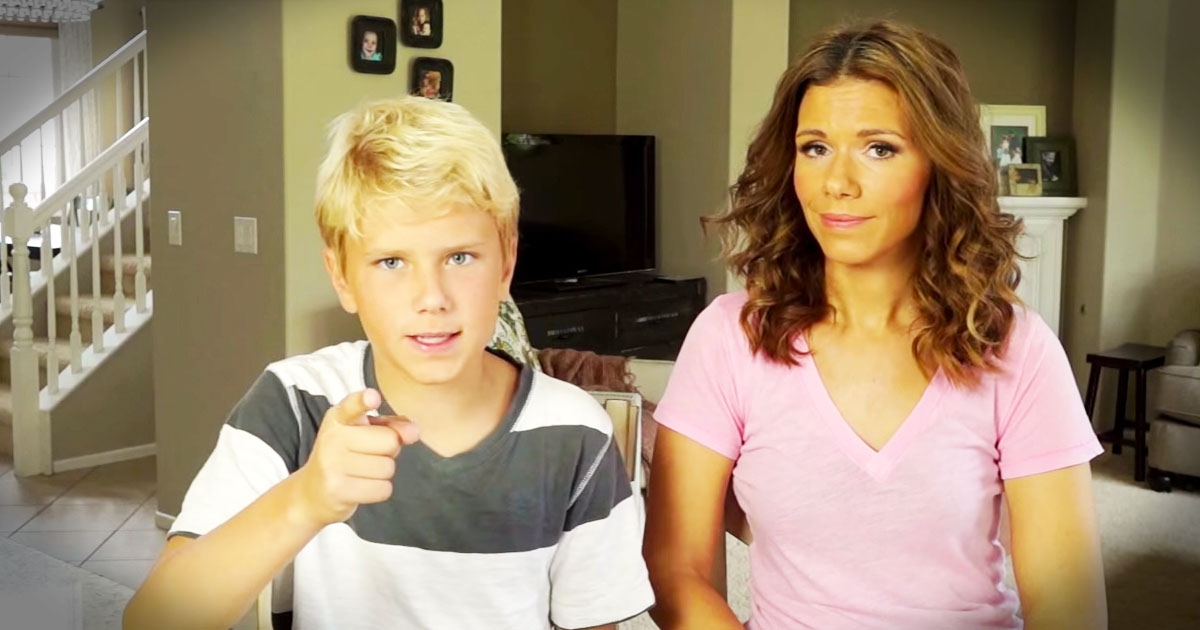 Most likely, the child will begin to whine: "Mom, I have a little more!". Here your task is to calmly cut him off from the players and discuss how to behave correctly in such a situation. “If you promised that you would not whine and cry when you need to go home, you can’t whine and cry. Otherwise, how will they believe you next time?”
Most likely, the child will begin to whine: "Mom, I have a little more!". Here your task is to calmly cut him off from the players and discuss how to behave correctly in such a situation. “If you promised that you would not whine and cry when you need to go home, you can’t whine and cry. Otherwise, how will they believe you next time?”
Here it is important that respect for agreements is supported by all close adults, there is only one position: "Agreed - it is necessary to fulfill it. And whoever does not fulfill the agreements is a violator, a whim and a small one, nothing serious can be allowed to him." We agree and do not be capricious.
Step 4: No whims.
An obedient child not only DOes what you ask him to do, he also STOPS doing what you do not like. The child tries to fight the will of his parents through his whims and tantrums, and your task at this step is to stop reacting to them in any way. Learn to do your own thing without reacting to the whims of the child - in those cases when you yourself are sure that you are right and you know that everyone will support you.
You are all hurrying to the train, packing your things. In this case, the whims of the child "Come play with me!" will be easily ignored by everyone, including grandmothers. Teach your child that there are important things to do. Teach your child to say, "This is important." If you sat down in front of him and, looking into his eyes, holding his shoulders, calmly and firmly say: "Adults now need to get together, and we will play with you later. This is important!" - then soon the child will begin to understand you. It is important!
Step 5: Requirements.
Your child already quickly comes running to you when you call him with something tasty, he stopped being capricious and no longer throws tantrums. As a rule, he will do what you asked him to do, but he is not yet used to the fact that you can seriously demand something from him. Requests are soft, while demands are hard and mandatory. Is that the way to listen? At this step, again act consistently, but carefully, at first demand a minimum and only when everyone supports you.
The child is already old enough to... In order not to take a toy from someone else's child, to pick up a fallen mitten yourself, to put porridge in your mouth yourself... - Always look for those moments when your demands will be supported by everyone around you, so that even the grandmothers at least kept silent.
If you have too many demands on your child, if he does not keep up with your numerous demands, or if you do not have the support of others, do not push. Like politics, education is the art of the possible. Napoleon himself taught his commanders: "Give only those orders that will be carried out."
Nevertheless, gradually remove the bait as something obligatory, start calling the child already without rewarding him with something tasty. It's time to teach the child that if mom (especially dad) is his name, you need to come simply because he was called. If he doesn’t go right away, they repeated it, but achieved it. And now they drew his attention to the fact that you had to wait for him, and asked him to come when his mother calls. No need to swear, just say: "When mom calls, you need to come right away!" - and kiss! Slowly, your child will begin to learn it.
No need to swear, just say: "When mom calls, you need to come right away!" - and kiss! Slowly, your child will begin to learn it.
Step 6: Responsibilities.
Requirements are one-time, while duties are a system of permanent requirements for a child. The time has come to teach the child that each member of the family has his own responsibilities, and he must participate in family affairs on an equal basis with mom and dad. Having explained this to the child, begin to confidently give him tasks, but also act gradually here: let him first choose his duties according to his strength, let him do what is not difficult for him, or, all the more, even want a little.
This step is more difficult for mothers than for children. Moms really want to do everything themselves and not strain the child. So, dear mothers and, in principle, parents, make sure that the child always has things to do at your request. The child should not fade away the understanding that he has tasks, and he must do it. Clean up the bed, take away the cup, wash the dishes, run to the store - most likely, it’s easier and cheaper for you to do it all yourself, but you are educators, so your task is to restrain yourself, not to do it yourself and entrust it to the child every time .
Clean up the bed, take away the cup, wash the dishes, run to the store - most likely, it’s easier and cheaper for you to do it all yourself, but you are educators, so your task is to restrain yourself, not to do it yourself and entrust it to the child every time .
At first, the child has to be reminded of his duties, after a while the duty to remember should fall on the child himself. Remembering your responsibilities is also the responsibility of the child!
Step 7: Self-reliance.
When a child already knows what duties are, it's time to teach him to be independent. The ability to obey is the basis of smart independence. The independence of an obedient child lies in the fact that you can already give him difficult tasks in the confidence that he will complete them completely on his own, without your help and prompts. It’s not just “Go to the store” or “It’s your responsibility to take out the bucket”, but “Pack up all the things you will need on the trip”, “Grandma needs help digging up a garden in the country”, “Toothache? Call the clinic, Find out when the doctor is, go and get your teeth fixed.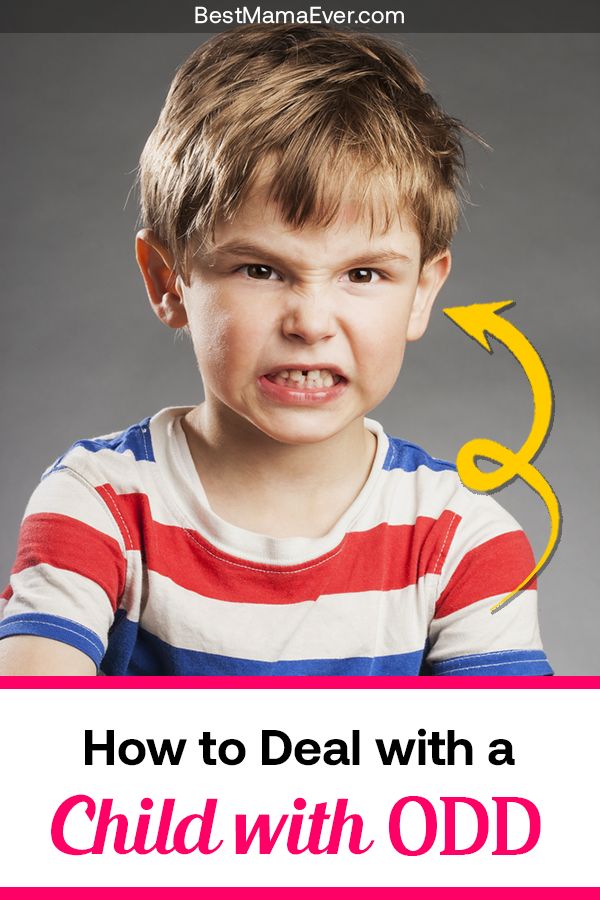 " As usual, not everything will turn out right away, at first the child will need your tips, help and support, but the more often he begins to successfully cope with difficult assignments, the faster he will wake up a taste for independence. So, move from simple to complex, from dense, frequent and specific clues to rare and general clues, and thus gradually move on to more and more difficult and independent tasks, mostly on the most positive background, with small irregular reinforcements and rare large ones.
" As usual, not everything will turn out right away, at first the child will need your tips, help and support, but the more often he begins to successfully cope with difficult assignments, the faster he will wake up a taste for independence. So, move from simple to complex, from dense, frequent and specific clues to rare and general clues, and thus gradually move on to more and more difficult and independent tasks, mostly on the most positive background, with small irregular reinforcements and rare large ones.
Ideally, if you go somewhere for a relatively long time, your child should be able to live without you without major problems. He is already on his own!
Step 8: Responsibility.
Well, the last step remains: responsibility. Women do not really like the word "responsibility", they are closer to "caring", but there is a difference between these words: a caring person pays only with efforts and soul, and a person responsible for his mistakes pays really. If you entrust a child with a responsible task, for this, in the event of a puncture, either the child or you will have to pay. But children grow up, it's time to acquaint them with responsibility, and now you entrust the child with not just deeds, but responsible deeds: those for which you need to answer to other people or, simply, pay for mistakes.
But children grow up, it's time to acquaint them with responsibility, and now you entrust the child with not just deeds, but responsible deeds: those for which you need to answer to other people or, simply, pay for mistakes.
You instructed a child to place an expensive service on the table. Or put money in the bank. Or - to bring a little sister from the kindergarten ... Will she not break it? Will not lose? Will not forget?
When taking on a responsible task, the child already knows the price of a mistake, and treats the assignment responsibly: he will think everything over, remember, follow up and check, and he will definitely report back to you at the end.
When a child learns this too, you can be proud - you are already an adult. You have raised an adult, responsible person! Remember, it all started with quiet, neat outbuildings to a completely naughty child?
Of course, and after that no one will promise you that your children will become angels and will never disobey you. Everything is possible, our children do not always obey us. Sometimes it happens by accident, sometimes on purpose. How to react to it? Calmly. If you act wisely, you will solve this issue without difficulty.
Everything is possible, our children do not always obey us. Sometimes it happens by accident, sometimes on purpose. How to react to it? Calmly. If you act wisely, you will solve this issue without difficulty.
By the way, is there anything after the eighth step, after the formation of responsibility in the child? Your child is not only ready to fulfill your requests, he knows his duties, he is a completely independent and responsible person. And it's all? Is there anything else we want to give our child? Tell me, when and how will we set the task so that our children grow up as loving people?
Should children listen unquestioningly to their parents?
There can be no unequivocal answer to this question precisely because parents are different. There are parents - alcoholics, there are - smart and loving. If we talk about smart and loving parents, then our answer will be positive: yes, children should obey such parents implicitly. Why? What for? Because smart and loving parents love their children and will never demand from their children what will be harmful to children. Such parents love to just talk to their children, spend time with them - and listen to what the children share with them. You don’t often hear demands on your children from them, and they demand only what is really necessary.
Such parents love to just talk to their children, spend time with them - and listen to what the children share with them. You don’t often hear demands on your children from them, and they demand only what is really necessary.
5 years old: when going out on the road, you need to take your mother by the hand and not play around here. 10 years: first lessons, then computer games. 15 years: at 22.00 - sleep!
Usually they don't even demand it, but gently ask, rather suggest and remind, and this is enough.
How to behave with children? Psychologist's advice
When disturbing, frightening events occur or a situation of uncertainty arises, parents are often worried about questions: how to behave with a child correctly, how to tell him about what is happening and whether to tell him at all what should alert the child's behavior, and what, on the contrary, is normal.
In child psychology, it is customary to distinguish several age periods. Consider the features of interaction with children of preschool (3-7 years old) and primary school (7-11 years old) ages.
A few recommendations:
The greatest influence on the child is not even the situation itself, but the reaction to it of close adults who surround him. For a preschooler, such adults will be parents and those adult family members with whom communication takes place every day; For the younger student, the teacher also plays a significant role:
- Children are very sensitive to the emotional state of close, significant adults. When an adult is upset, anxious, scared, the child also experiences these emotions. If the child does not know the reason, then helplessness is added to fear and anxiety. Therefore, when you see a child's need to talk, do not ignore it.
Example: You are upset and need some time to recover. The child feels this and insistently asks the question “What happened?”
Wrong answer: "Nothing happened, go play (draw, do your homework)"
The correct answer is: “I’m a little upset (alarmed, sad) right now, because . .., let’s draw a robot now (do your math homework), and then we’ll go for a walk (we’ll have dinner).”
.., let’s draw a robot now (do your math homework), and then we’ll go for a walk (we’ll have dinner).”
- When talking to your child, use simple, child-friendly phrases and expressions.
- Ask about the child's point of view. This will help to understand what worries, scares or worries him, and you can provide the necessary psychological support.
- Try to ensure that the positions of adults do not contradict each other. Putting a child in a situation of choice, you place an unbearable burden on him.
- Children very quickly adapt to the situation, BUT! Only on condition that the behavior of adults gives them such an opportunity.
Pay attention to information hygiene:
- Pay attention to what you watch or talk about with your family, friends, acquaintances. Try not to see or hear what is not intended for him: emotional disputes with colorful examples, news releases with frightening details.
 Sometimes there is a feeling that the child does not pay attention to what is happening - this is an illusion! Based on the information obtained in this way, children often draw their own conclusions about what is happening, which are often the cause of children's fears.
Sometimes there is a feeling that the child does not pay attention to what is happening - this is an illusion! Based on the information obtained in this way, children often draw their own conclusions about what is happening, which are often the cause of children's fears. - At primary school age, the information field of the child expands, it includes school friends, classmates, many at this age master communication on the Internet. Show interest in this area, ask about his friends and hobbies. A trusting relationship will help you spot trouble or danger.
- Talk to children about topics that concern them, do not limit yourself to the phrases “everything will be fine”, “this is an adult topic, you won’t understand”, etc. If adults do not give an answer to a question of interest to the child, he will find the answer in another source, which may be unreliable and even dangerous.
Pay attention to the behavior and mode of life of the child:
- Adults experience difficult moments, realizing, thinking over and discussing what is happening.
 Children have other ways. It is easier for a preschooler to cope with what is happening by playing or drawing it. Therefore, stories that frighten a child can be found in a game or drawings. For younger students, it is important to study, master new knowledge, so often children of this age try to learn more about what excites, frightens or disturbs. Do not prohibit children from these activities and do not blame them. The best strategy is discussion and cooperation. And if the behavior of the child is alarming, consult a child psychologist for advice.
Children have other ways. It is easier for a preschooler to cope with what is happening by playing or drawing it. Therefore, stories that frighten a child can be found in a game or drawings. For younger students, it is important to study, master new knowledge, so often children of this age try to learn more about what excites, frightens or disturbs. Do not prohibit children from these activities and do not blame them. The best strategy is discussion and cooperation. And if the behavior of the child is alarming, consult a child psychologist for advice. - Organize your child's life by keeping the usual routine of the day as much as possible. The usual course of life, everyday affairs, the presence of a plan for the next day, week, month allow you to overcome the feeling of helplessness and anxiety, allow you to feel confident.
Do not neglect sports, communication, hobbies yourself and do not deprive this child. If something from the previous possibilities turned out to be unavailable, try to find a replacement. These activities allow you to replenish the resources and energy spent on experiences.
These activities allow you to replenish the resources and energy spent on experiences.
Seek professional help if necessary. You may need to consult a child psychologist if:
- The child's behavior has changed dramatically, these changes are persistent - they last several weeks or longer.
- The child has lost interest in things that were previously important to him: play, study, sports.
- The nature of communication with others has changed significantly: he became withdrawn, stopped communicating with friends, refuses to go to school or kindergarten.
- Symptoms such as stuttering, nightmares and difficulty falling asleep, intense fear appeared.
You feel the need for psychological help, even if there are no signs listed above.
We remind you that the Ministry of Education has organized a round-the-clock hotline for psychological assistance for children and parents based on the resource center of the Moscow State University of Psychology and Education.








